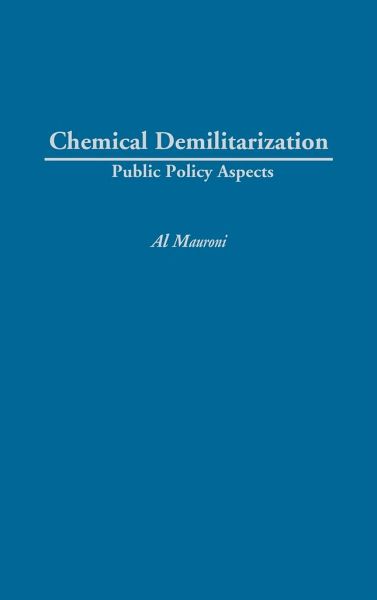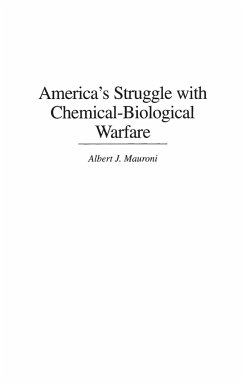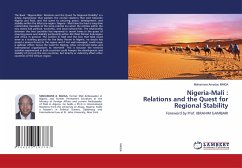
Chemical Demilitarization
Public Policy Aspects

PAYBACK Punkte
44 °P sammeln!
For more than 15 years, the Army's chemical demilitarization program has been criticized and castigated as a potentially dangerous effort, poorly executed without concern for the public. By reviewing the chemical demilitarization program as a public policy area, Mauroni offers a different perspective on how the Army worked with Congress and the public to offer the safest program possible. The Army was forced to delay its own schedule and increase the breadth and depth of the program to address political demands and idealistic environmental concerns. Mauroni contends that Army and Department of...
For more than 15 years, the Army's chemical demilitarization program has been criticized and castigated as a potentially dangerous effort, poorly executed without concern for the public. By reviewing the chemical demilitarization program as a public policy area, Mauroni offers a different perspective on how the Army worked with Congress and the public to offer the safest program possible. The Army was forced to delay its own schedule and increase the breadth and depth of the program to address political demands and idealistic environmental concerns. Mauroni contends that Army and Department of Defense leadership's insistence on treating this program as a strictly technical effort, rather than as a public policy concern is in part responsible for the public's misunderstanding of the Army's execution of the program. Despite its challenges, the Army is well on its way to accomplishing its goal of destroying the U.S. chemical weapons stockpile with no impact on the public or environment. They have stumbled through, however, rather than planned their exit. According to Mauroni, the Army needs to examine this program carefully to identify how to address public policy questions better in the future, to include responding to chemical and biological terrorism, developing a biological warfare vaccine program, and addressing future Gulf War illness questions. Their failure to learn will otherwise result in a continued inability to address critical questions on how they respond to chemical and biological warfare issues.














